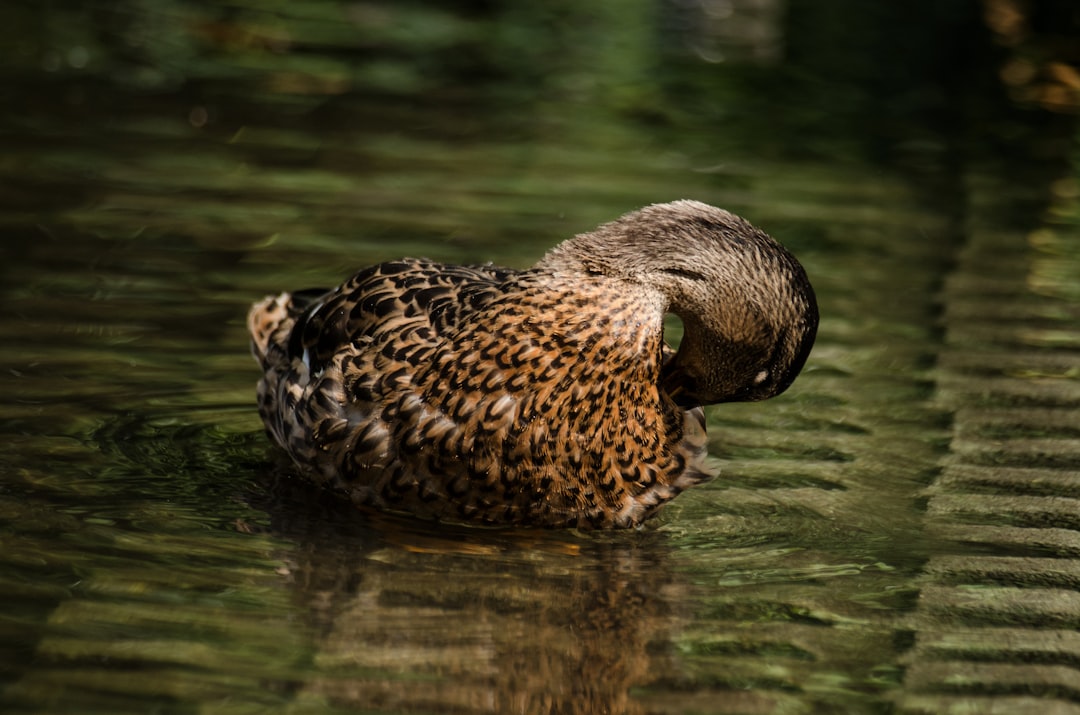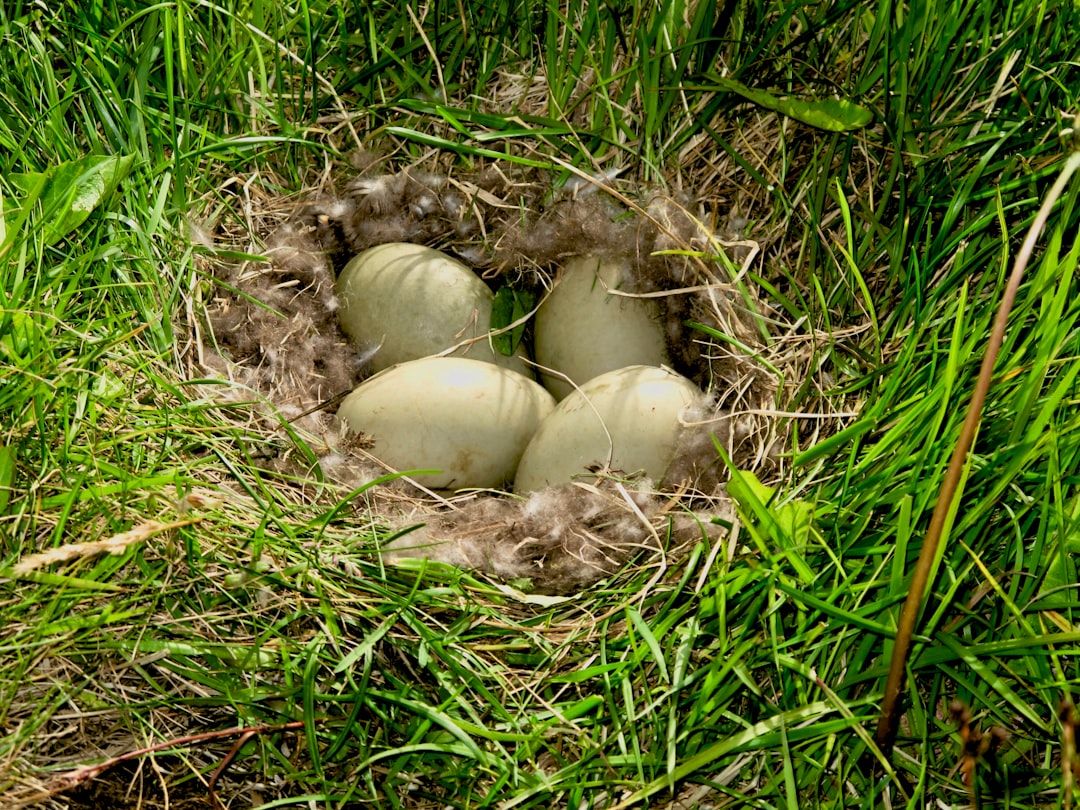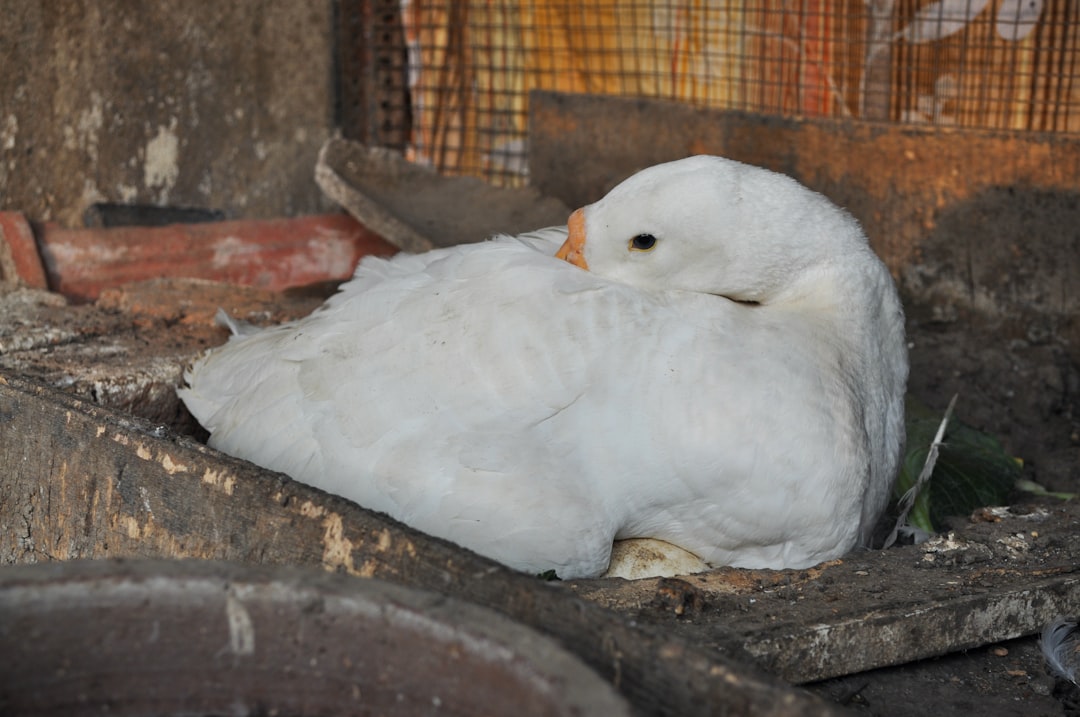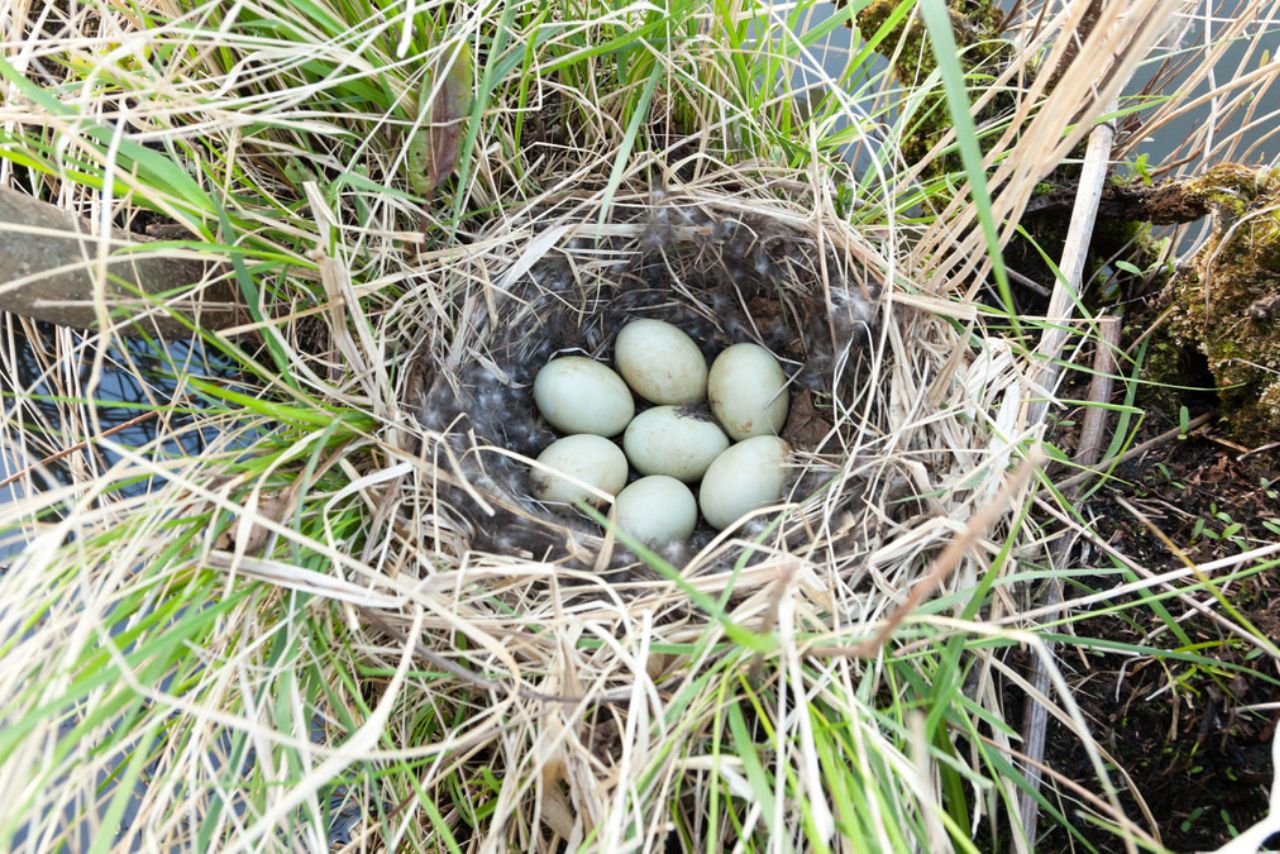Ducks are fascinating creatures and are known for their adorable waddling and quacking. They are also known for their ability to lay eggs, which are not only delicious but also highly nutritious.
However, if you are planning to raise ducks or simply curious about their egg-laying habits, you might be wondering what time of day do ducks lay eggs.
In this article, we will explore the answer to this question and provide some insights into the egg-laying habits of ducks. So, let’s dive in!
Ducks typically lay their eggs early in the morning, usually between 6 and 8 a.m.
This is because ducks are diurnal animals, meaning they are most active during the day and rest at night.
The egg-laying process takes about 20-30 minutes, during which the duck will find a quiet, secluded spot to lay her eggs.
It is important to note that not all ducks lay eggs at the same time, as factors such as breed and age can affect their egg-laying habits.
Additionally, ducks can lay eggs year-round, but the number of eggs produced may vary depending on the season and the duck’s environment.
The Natural Laying Schedule Of Ducks
Ducks are known to lay eggs every other day, but this can also vary based on the breed and age of the duck.
As they get older, their egg production may decrease, and some breeds are better egg-layers than others.
Providing your ducks with a safe and comfortable environment can also encourage healthy egg-laying habits.
Ducks Are Diurnal Creatures
Ducks are diurnal creatures, which means they are most active during the day and prefer to rest at night.
This is why they lay their eggs in the morning when they are most active and alert.
By understanding their natural egg-laying habits, you can provide them with the optimal environment to lay healthy and nutritious eggs.
Most Ducks Lay Eggs In The Early Morning
By knowing at what time ducks lay eggs, you can plan your day and collect their eggs promptly to ensure they are fresh.
It is also interesting to note that female ducks have a unique ability to store sperm for up to three weeks, which means that the eggs they lay during this period may have been fertilized by a male duck previously.
In summary, ducks typically lay their eggs early in the morning between 6 and 8 a.m., and various factors can affect their egg-laying habits.
Some Ducks May Lay Eggs Throughout The Day
It is important to note that not all ducks follow the typical early morning egg-laying schedule.

Some ducks may lay their eggs throughout the day, while others might prefer to lay in the late afternoon or evening.
Factors such as breed, age, and environment can influence their egg-laying habits.
If you are raising ducks and notice that they are not following a consistent egg-laying schedule, it is best to observe them closely and adjust their environment accordingly.
In addition to environmental factors, ducks’ egg-laying habits can also be affected by stress and illness.
Top 10 Factors That Affect Egg Production
Top 10 Factors That Affect Egg Production Are Under:
1. Age of Ducks:
As Ducks age, their egg production tends to decrease, with peak production typically occurring between 1-2 years of age.
2. Diet:
A balanced diet that includes the right amount of protein, vitamins, and minerals is essential for optimal egg production.
3. Lighting:
Hens require 14-16 hours of daylight to lay eggs consistently. Without enough light, egg production can decrease.
4. Temperature:
Extreme temperatures, whether too hot or too cold, can stress hens and reduce egg production.
5. Water availability:
An adequate supply of clean water is essential for hens to stay hydrated and maintain egg production.
6. Space:
Overcrowding can cause stress and lead to a decrease in egg production, so it’s important to provide enough space for hens to move and lay eggs comfortably.
7. Genetics:
The breed of the hen can play a role in egg production, with some breeds naturally laying more eggs than others.
8. Health:
Disease, parasites, and other health issues can impact egg production, so regular veterinary check-ups and proper care are crucial.
9. Stress:
Hens that experience stress from loud noises, predators, or other disturbances may stop laying eggs or produce fewer eggs.
10. Season:
Egg production tends to be highest in the spring and summer months, with a decrease in production during the fall and winter.
At What Age Do Ducks Begin Laying Eggs?
Ducks typically begin laying eggs at around five to six months of age, depending on the breed and individual duck.
It is important to note that ducks do not lay eggs year-round like chickens do.
Instead, they have a natural breeding season that starts in late winter or early spring and lasts until mid-summer. During this time, female ducks will lay eggs regularly.
How Many Times A Day Do Ducks Lay Eggs?

Ducks typically lay one egg per day during their breeding season. However, it is important to note that not all ducks follow this schedule, and some may skip a day or two between laying eggs.
Factors such as breed, age, and environment can also influence their egg-laying frequency.
How Many Eggs Can 1 Duck Lay?
The number of eggs a duck can lay depends on various factors such as breed, age, and environment.
On average, a healthy duck can lay up to 300 eggs per year during their breeding season. However, some breeds are known to lay more eggs than others.
Can Ducks Lay Multiple Eggs A Day?
Ducks typically lay one egg per day during their breeding season, and it is rare for them to lay multiple eggs in a day.
However, some ducks may occasionally lay two eggs in a day if they are experiencing stress or other health issues.
How Many Months A Year Do Ducks Lay Eggs?
Ducks do not lay eggs year-round like chickens do. Instead, they have a specific breeding season when they lay the majority of their eggs.
Typically, this breeding season occurs during the spring and summer months, with a decrease in production during the fall and winter.
The length of time that ducks lay eggs each year can vary depending on several factors, including breed and environment.
On average, ducks will lay eggs for approximately six to eight months out of the year.
During this time, female ducks will lay eggs regularly until they reach the end of their breeding season.
What Is The Best Food For Ducks To Lay Eggs?
The best food for ducks to lay eggs is a well-balanced diet that is rich in protein and essential nutrients.
Commercial duck feed is an excellent option, as it contains all the necessary vitamins and minerals that your ducks need for healthy egg production.
In addition to commercial feed, you can also supplement your ducks’ diet with fresh fruits and vegetables, such as leafy greens, carrots, and berries.
Providing clean water for your ducks to drink and bathe in is also crucial, as dehydration can affect their egg-laying habits.
The Best Duck Breeds For Eggs
When it comes to choosing the best duck breeds for eggs, there are several options to consider.
Khaki Campbell ducks are a popular choice due to their high egg production, laying up to 300 eggs per year.
Runner ducks are also known for their impressive egg-laying abilities, with some individuals laying up to 200 eggs annually.
Other breeds that are known for their egg-laying capabilities include Buff Orpingtons and Welsh Harlequins.
What Stops Ducks From Laying Eggs?

Several factors can stop ducks from laying eggs. One common reason is stress, which can be caused by a variety of factors such as changes in their environment or the presence of predators.
Illness and disease can also impact egg production, as can age and poor nutrition.
It’s also important to keep in mind that ducks will naturally slow down or stop laying eggs during the fall and winter months when daylight hours shorten.
How Do You Know If A Duck Is About To Lay Eggs?
Female ducks will often exhibit certain behaviors that indicate they are about to lay eggs.
They may become restless, pace around their nesting area, or repeatedly enter and exit their nest.
Some ducks may also make particular vocalizations or even quack loudly before laying an egg.
Additionally, you may notice a change in the shape or size of your duck’s abdomen as it prepares to lay an egg.
What Are Duck Eggs Like?
Duck eggs are similar in taste to chicken eggs but have a richer, creamier yolk and a slightly larger size.
They also have a thicker shell, which can make them more difficult to crack open.
Some people prefer duck eggs for baking because of their high fat content, which can result in fluffier cakes and pastries.
Why Raising Ducks For Eggs Is A Good Idea?
Raising ducks for eggs is a good idea for several reasons. For one, ducks are efficient egg layers and can produce more eggs per year than chickens.
They also have a longer laying lifespan, with some breeds continuing to lay eggs up to 5 years or more.
Additionally, ducks are hardy birds that are easy to care for and require minimal space compared to other livestock animals.
They also provide pest control benefits by eating insects and snails in your yard or garden.
Furthermore, raising ducks for eggs can be a sustainable food source that promotes self-sufficiency and reduces reliance on store-bought products.
Plus, duck eggs are a nutritious and delicious alternative to chicken eggs that can add variety to your diet.
Conclusion: What Time Of Day Do Ducks Lay Eggs?
Ducks are great egg-layers that can provide a sustainable and nutritious food source.
When choosing the best duck breeds for eggs, consider Khaki Campbell, Runner, Buff Orpington, and Welsh Harlequin. However, individual ducks within a breed may vary in their egg-laying habits.
Factors such as stress, illness, age, poor nutrition, and seasonal changes can affect egg production.
It’s important to provide ducks with proper care and a suitable nesting area where they feel comfortable laying their eggs.
Duck eggs are safe to eat when properly cooked and have a richer taste than chicken eggs that some people prefer for baking.
Raising ducks for eggs is an excellent idea as they are efficient layers that require minimal space and provide pest control benefits.
FAQs
What Time of Day Do Ducks Lay Eggs?
Ducks typically lay their eggs in the morning, usually between the hours of 6 am and noon.
Do Ducks only Lay Eggs During the Day?
Yes, ducks will only lay eggs during daylight hours, as they require a certain amount of light to stimulate egg production.
Can Ducks Lay Eggs at Night?
No, ducks will not lay eggs at night as they need light to trigger the hormone that stimulates egg production.
How Many Eggs Can a Duck Lay in One Day?
Most breeds of ducks will lay one egg per day during the breeding season, with some individual ducks laying more or fewer eggs.
Do All Breeds of Ducks Have the Same Egg-Laying Habits?
No, different breeds of ducks may have varying egg-laying habits and frequencies. It’s important to research each breed before choosing which ones to raise for egg production.




